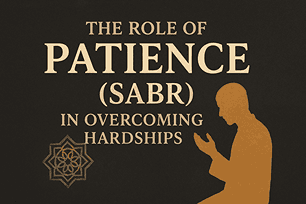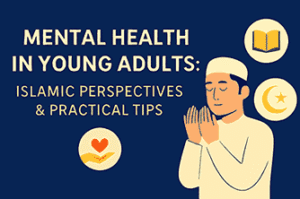The Dangers of Pride and Arrogance in Islam

Introduction
Pride and arrogance are spiritual diseases that silently damage a person’s heart. They create distance between a believer and Allah, leading to destructive behaviors and broken relationships. Islam, being a complete way of life, strongly warns against these traits. From the Qur’an to the teachings of Prophet Muhammad ﷺ, believers are repeatedly reminded that pride is a path that leads away from mercy and toward downfall.
Understanding Pride in Islam
In simple terms, pride (kibr) means considering oneself superior to others and rejecting truth. The Prophet ﷺ defined arrogance as “rejecting the truth and looking down on people” (Sahih Muslim). This definition highlights two dangerous aspects. First, pride prevents a person from accepting guidance, advice, or correction. Second, it poisons relationships by making people feel belittled.
The Root of Arrogance: A Lesson from Iblis
The story of Iblis is the earliest example of arrogance in human history. When Allah commanded all angels and Iblis to bow before Adam (peace be upon him), Iblis refused. His arrogance made him believe that being created from fire made him superior to Adam, who was created from clay. As a result, he was expelled from Paradise. This story is a timeless reminder that arrogance is not only destructive but also the reason for Iblis’s eternal curse.
The Quranic Warning Against Arrogance
The Qur’an contains many verses that warn against arrogance. Allah says:
“Do not walk upon the earth arrogantly. Indeed, you will never tear the earth [apart], and you will never reach the mountains in height” (Qur’an 17:37).
This verse shows the foolishness of pride. No matter how powerful or wealthy a person becomes, they are still weak compared to Allah’s creation. Mountains, oceans, and the universe remind us of our smallness. Yet, arrogance blinds a person from this reality.
Another verse states: “Indeed, Allah does not like the arrogant, boastful” (Qur’an 31:18). The dislike of Allah is enough to show the seriousness of this sin. When Allah dislikes a person’s actions, they lose blessings in this life and risk punishment in the Hereafter.
Why Pride Is So Dangerous
Pride is dangerous because it blocks guidance. A proud heart cannot accept the truth even when it is clear. This is why the Quraysh leaders rejected Islam. Their pride in their status and wealth blinded them from the truth of the message.
Additionally, arrogance destroys relationships. It makes a person harsh, dismissive, and unwilling to admit mistakes. This behavior leads to isolation and conflict in families, friendships, and communities. In contrast, humility opens doors for love, respect, and harmony.
Arrogance and Social Behavior
Pride affects not only an individual’s faith but also society. When leaders are arrogant, they rule unjustly. When scholars are proud, they misguide others. When ordinary people show arrogance, they create divisions among Muslims. This is why Islam emphasizes humility at every level of life. The Prophet ﷺ was the leader of the Muslims, yet he lived simply, ate with his companions, and served his family at home. His humility set the best example.
Signs of Pride in Daily Life
Recognizing pride is the first step to removing it. Some common signs include:
Refusing to admit mistakes.
Belittling others because of wealth, education, or status.
Seeking constant praise and recognition.
Becoming angry when corrected.
Ignoring the rights of others.
A believer should examine themselves regularly to ensure these signs do not take root in the heart.
Humility as the Cure
Just as arrogance leads to destruction, humility leads to honor. The Prophet ﷺ said: “No one humbles himself for the sake of Allah except that Allah raises him in status” (Sahih Muslim). This shows that true honor is not in arrogance but in humility.
Humility does not mean weakness. Instead, it means recognizing one’s dependence on Allah and treating others with respect. It allows a person to learn, grow, and connect with people sincerely.
Practical Steps to Overcome Pride
Remember your origin: Allah created humans from dust. This reminder keeps arrogance in check.
Reflect on death: Every soul will return to the grave. Wealth, beauty, and power will not last.
Practice gratitude: Acknowledge that every blessing comes from Allah, not from personal greatness.
Serve others: Volunteering and helping the needy soften the heart and break pride.
Accept advice: Be open to correction from family, friends, and scholars.
The Danger of Spiritual Pride
Sometimes pride hides in worship itself. A person may feel superior because they pray regularly, fast, or give charity. This spiritual pride is especially dangerous because it disguises itself as piety. True worship should lead to more humility, not arrogance. The companions of the Prophet ﷺ feared hypocrisy and arrogance despite their great deeds. Their example teaches us to remain humble regardless of how much we worship.
The Final Consequence of Arrogance
The ultimate danger of arrogance is being deprived of Paradise. The Prophet ﷺ warned: “Whoever has an atom’s weight of arrogance in his heart will not enter Paradise” (Sahih Muslim). This hadith is a clear warning that arrogance is incompatible with faith. A person who insists on pride closes the doors of mercy upon themselves.
Conclusion
Pride and arrogance are among the most destructive diseases of the heart. They blind a person from truth, ruin relationships, and block guidance. Islam teaches that real success lies in humility, obedience, and service to others. By remembering our origin, reflecting on death, and practicing gratitude, we can protect ourselves from arrogance. The story of Iblis and the warnings in the Qur’an serve as timeless reminders of the danger of pride. Every believer must strive to cultivate humility, for it is through humility that Allah grants honor, guidance, and eternal success.













Post Comment